April 24th has always been a complicated day for me. For the Armenian community, it is the day we commemorate the Armenian Genocide, which “began” on this day 106 years ago with the deportation and murder of Armenian intellectuals and leaders by the Young Turk government of Ottoman Turkey. By the end of the genocide, 1.5 million Armenians were systematically killed, raped and “deported” via death marches and work “camps.” I had previously written about the legacy of the genocide as it related to last summer’s attack on the region of Tavush and the continued threat of neo-fascist pan-Turkism. In light of this day and all the weight it carries for both myself and my community, I think it’s important to consider what April 24th will mean moving forward assuming President Biden has kept his promise to recognize the Genocide this year.
This day of intense pain for Armenians has always demonstrated the unique beauty and power of collective grief. Amidst the tears, we also celebrate our survival and our thriving diaspora. For my family, this day was always complicated by my grandtatik’s (great grandmother’s) birthday. We felt strange honoring her on a day like this; her celebrations were always a bit somber. I struggle to write and speak about her because her passing is still painful for me. Grandtatik and I shared a powerful and unique connection; she couldn’t speak English and I couldn’t speak Armenian, yet we were incredibly close and found ways to communicate without words. I cannot discuss my relationship to this day without providing a requiem of sorts for my grandtatik Nvart.
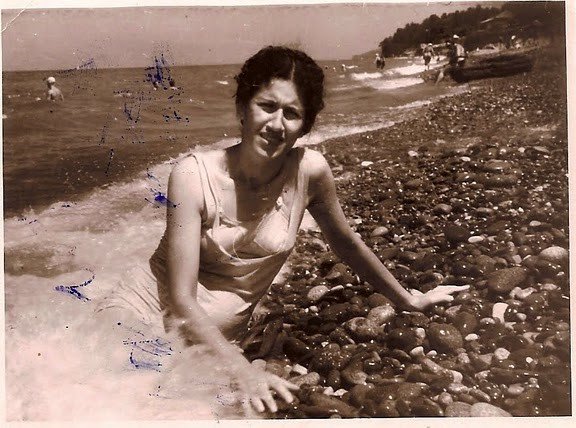
Nvart Azizyan was born on this day, April 24th, 1922, in Constantinople to Yeranouhi “Metzo” Ajemian and Harutuin Azizyan. Her family was originally from Van (an Armenian region that is now part of Turkey) but were displaced by the genocide. A year or two after Nvart was born, her family moved to France. It is around this time that the family details are fuzzy, as Harutuin was “exiled for communism related activities,” and it is understood he “was not around” as a father. In 1929, Nvart’s family settled in Yerevan, Armenia.
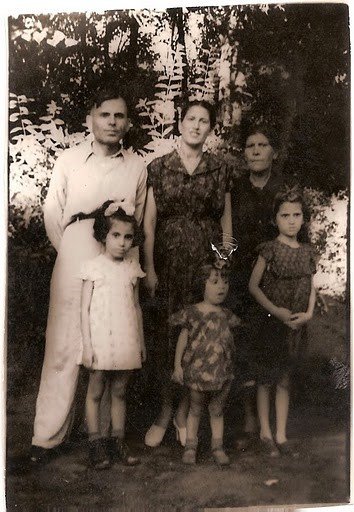
During World War II, Nvart performed with a singing group that traveled the region, raising morale along the way. In 1948, my grandtatik was waiting for her mother at the bus stop near the Armenian Circus building so that they could walk home together. It was then that my grandpapik (great grandfather) Garegin Aslanyan saw Nvart and began speaking to her. What Garegin didn’t know is that Nvart was deaf in both ears, having sustained a recent injury from a snowball to the side of the face in one ear and hearing loss from a childhood illness in the other. Nvart’s mom came and went (she didn’t notice) and Garegin continued to talk to her as he walked her home. Finally, she told Garegin she couldn’t hear what he was saying as she was deaf, to which Garegin replied that he “knew doctors” who could fix her hearing. He kept his promise, and they married. Together, they raised four daughters, including my tatik (grandma) Anahit. Garegin was a genocide survivor. I always tell the story of how he fled the Turkish officers and made it to safety by holding onto the tail of an ox to get across the river. He watched as they took his little brother with them. He was an orphan, as was my papik’s mother Ashken, who lost her parents and all but two siblings in the genocide. My papik’s father Suren was from Znabert, Nakhichevan, which had remained one of the few safe havens for Armenians in which they were not driven out by Turks and Azeris. This of course changed in 1991 under Gorbachev. Nakhichevan is now the site of one of the worst cultural genocides in history in which Azerbaijan destroyed an estimated 89 Armenian churches, 22,000 gravestones and about 10,000 khachkars. Nvart and Garegin remained together until he passed away in 1985. Years later, Nvart moved to Los Angeles along with the rest of the family and soon after that, I was born.
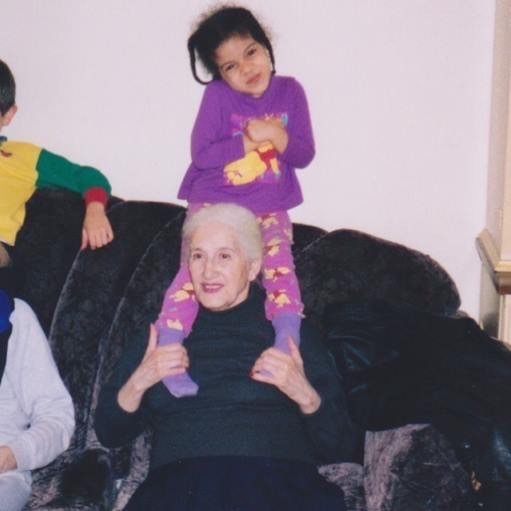
Extended family members always seemed surprised at how close grandtatik and I were. I can’t blame them; it was strange to see two people share so much joy without being able to understand each other. My grandtatik and I just didn’t need words. We communicated through gestures and would often point at things to express ourselves and teach each other words. Often when telling a story, my grandtatik would translate her words into Russian…for me. To be clear, I have never spoken Russian, a fact of which my father and aunt Knarik would often remind her. She would laugh at her assumption every time. Russian was Nvart’s “foreign language” as all Armenians who grew up under the Soviet Union had to speak Russian in schools. As a result, my grandtatik always felt I was more likely to understand her if she spoke Russian. We would watch TV and make each other laugh. When I went out of state for college, I always showed her my scrapbooks of everything I had experienced while I was away. “How I love that child,” she would say to my family in Armenian.
In 2017, I had settled back in LA after graduating college and performing in a play on the east coast. I was happy I would once again be able to spend time at the apartment complex with my family. My grandtatik and I slid back into our habit of watching reruns of Seinfeld and making silly faces at each other. It was around this time that her health started to decline. She had always come back from health setbacks, so my naive self felt she would be better again after some rest. Over time she no longer sat in her spot on the couch and instead stayed in bed all day with visits from nurses. Then things took an even sharper turn for the worse, and she was hospitalized. I remember my dad initially didn’t want to take me to visit because he said I “shouldn’t see her like that.” The day after my birthday, we went to see my grandtatik. It was tough. I wasn’t sure she knew who we all were or heard the last words I whispered in her ear—“Yes kez sirumem.” My aunt said her eyes opened, and she saw me when I said that. I hold onto that.
The next day, my father told me she was gone. I couldn’t breathe. I couldn’t accept what he said. The brightest, most pure light in my life was gone. When I look at the woman I am today, sure of my identity, I remember the parts of me that were shaped by my grandtatik. She loved me unconditionally from the moment she saw me. She loved my blackness; she did not tolerate me in spite of it. She showed me true connection supersedes language and speech. She always went out of her way to ensure my mother and I were included in the conversations we didn’t understand because she knew herself how frustrating and othering a space full of a foreign language could be. She told our family of our “royal” roots and history. She reminded us that we as a people had so much that was stolen through colonialism and genocide. She wanted us to take pride in our culture and family history.
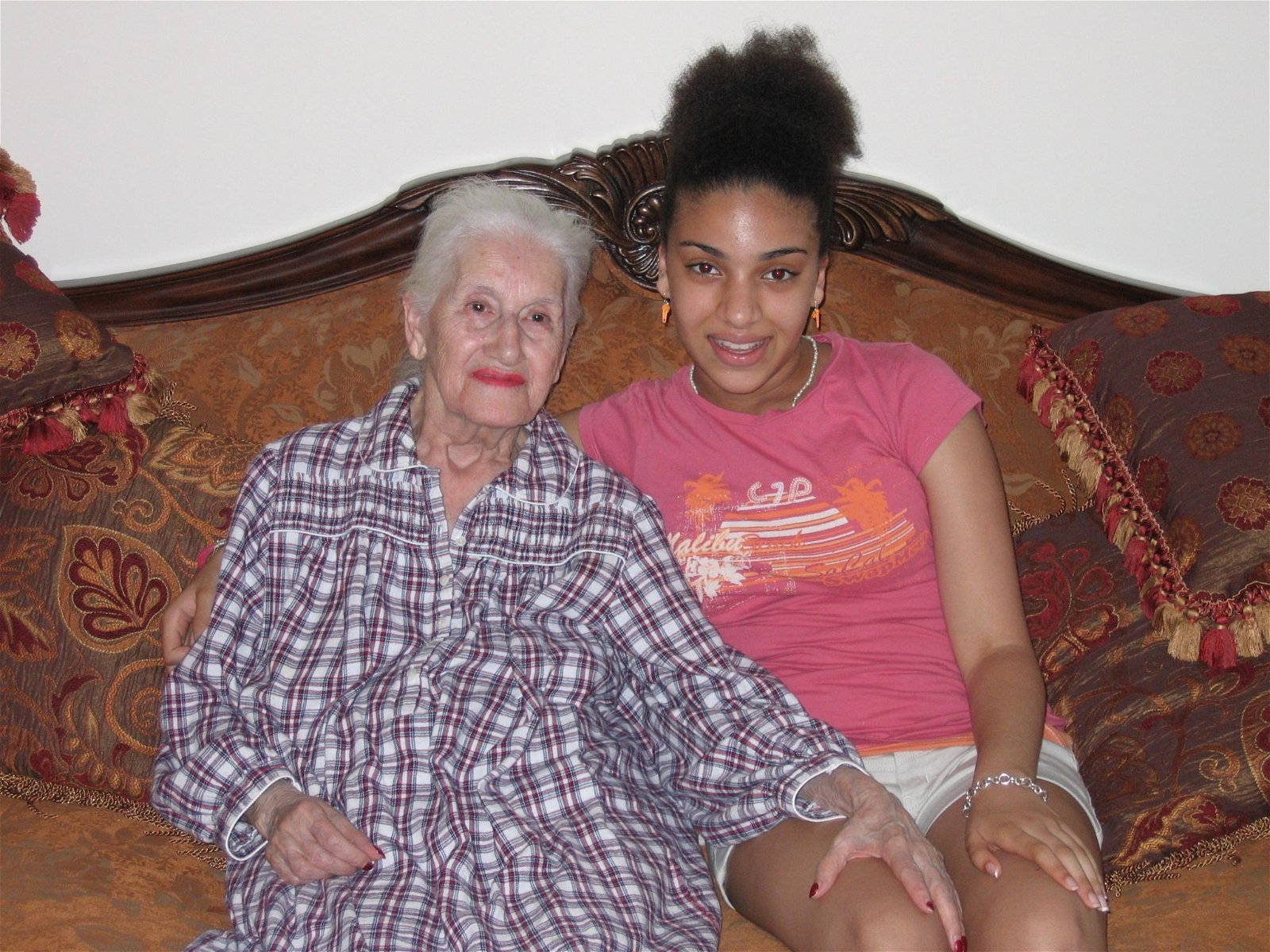
I always say I am a proud Black Armenian woman. While my “#BlackGirlMagic” has been complicated by my light skin and “mixed” identity, I have always felt accepted and seen by the Black community. I was, not only sure of, but comfortable in my Blackness. By contrast, I came into my own as an Armenian woman over time, and it was a struggle. Even now, as my work for the Armenian community has increased, so has my visibility. This visibility has been beautiful in that I have found so much love and acceptance that my younger self never imagined existed. This visibility has also resulted in hatred from members of my own community directed at me for my race. I have been called a “rootless nig,” “nigger,” “mulatto” and of course, the great Armenian insult, a “turk,” simply because I am unapologetically Black and I exist. A prominent “leader” in the Armenian community once tried to explain his problematic behavior to me by telling me to listen to him “with my Armenian side.” Apparently all mixed race people have an on and off switch for each ethnicity, who knew? The Armenian community has grown so much and there has been a movement to uplift and center marginalized Armenian identities, such as those who are mixed race, LGBTQ+, disabled, etc. This shift is necessary, and we must continue to hold those who cause harm in our community accountable.
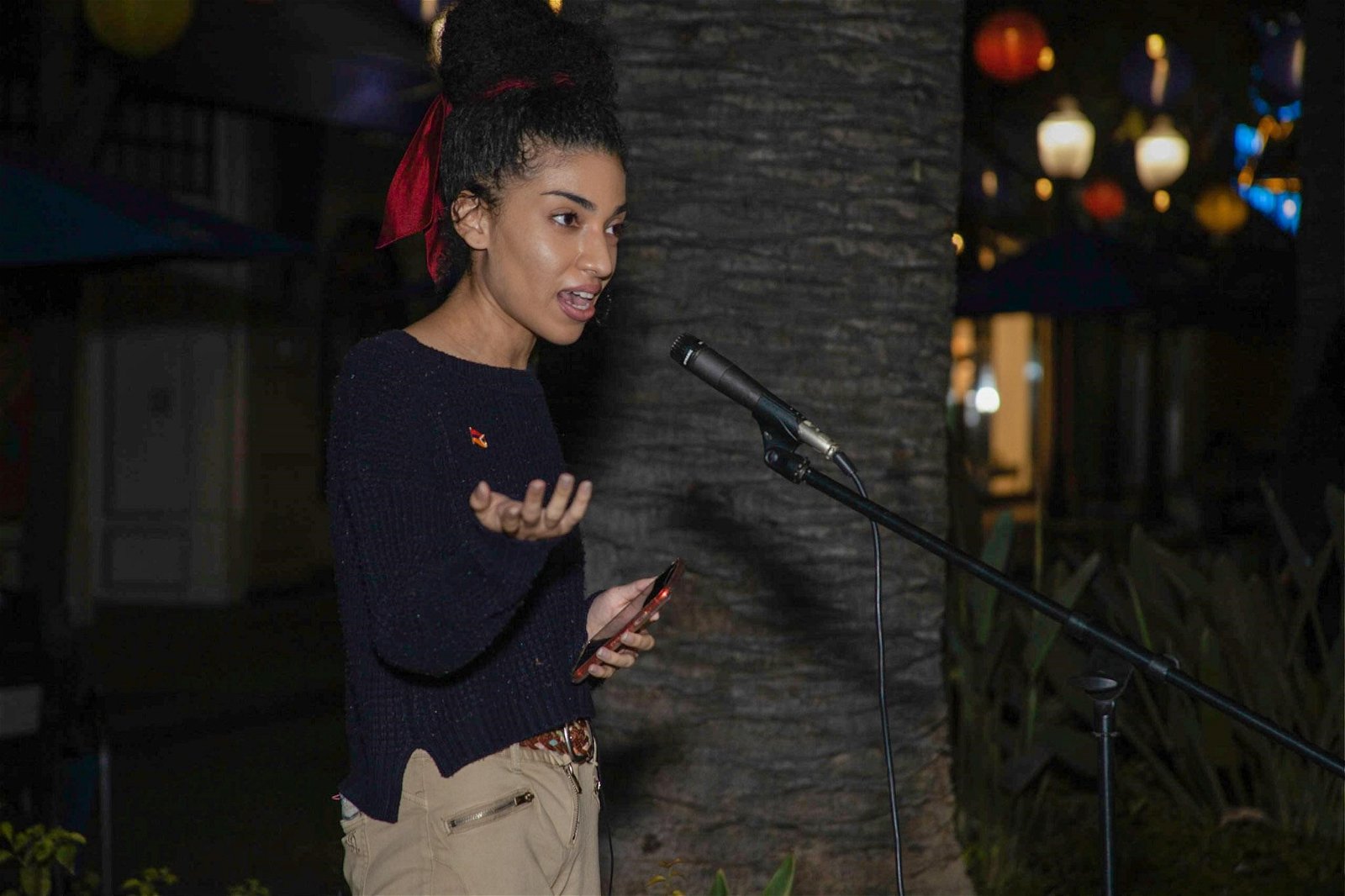
If you are a true Angeleno, you know that today is the day Armenians march in the streets, demanding recognition for a genocide some of you deem too distant and unimportant to garner true attention or concern. You watch us curiously in your neighborhoods or on your televisions and move on. April 24th is unique this year for a number of reasons. Armenians at home and in the diaspora are still navigating the trauma of the genocidal attack perpetrated by Azerbaijan and Turkey this past fall. This “war” resulted in thousands of deaths, environmental destruction and the loss of two-thirds of indigenous Armenian land in Artsakh. It has been 167 days since the end of the “war,” and Azerbaijan is also still holding and torturing approximately 250 Armenian POWs. To make things worse, the Azerbaijani government opened a “military trophies park,” which displays the helmets of fallen Armenian soldiers and has cartoonish and culturally stereotypical wax figures of Armenians bloodied and modeled as POWs and in positions of death. The creators of these wax figures said they wanted them to be as ugly “as possible.” While it may seem like harmless xenophobia to many in the United States, Armenophobia has deadly and systemic consequences abroad, as evidenced by the large number of Azeris who have visited the park, taking photos of their children gleefully pretending to strangle Armenians. Through all of this pain, a new path has emerged on the other side. I believe this road leads to true justice for the Armenian people in the form of reparations for the Armenian Genocide. President Biden, like his predecessors, promised to formally recognize the Armenian Genocide while running for office. This great “promise” from the sitting President of the United States has always been subsequently broken once they assume office due to the United States’ strategic alliance with Turkey. In 2019, Armenian Genocide recognition passed both the House and the Senate, only to be subsequently vetoed by Trump. This year, it has been confirmed by sources close to the White House that President Biden will in fact keep his promise to formally recognize the Armenian Genocide on the date of this article’s publication, April 24th, 2021.
This formal recognition of a historical fact is just the start. For too long, the Armenian community has been so focused on a single issue. For there to be true justice, Armenians need reparations for the lives lost, the indigenous lands stolen and the cultural genocide that continues to erase ancient sacred monuments, khachkars, gravestones and history. True justice will not exist if there are no reparations for these atrocities, land is not returned, and these oppressive powers remain free to colonize. The United States must also provide reparations for their own genocide of Black and Indigenous people. It is my sincere hope that the members of the Armenian community who are new to organizing continue to fight for Armenian liberation and the liberation of ALL people. When we stand in solidarity, we truly are unstoppable. Today remains a day of action and remembrance—grief and hope. Today I choose hope. Today my heart sings because I know Nvart, Garegin, Ashken and Suren are smiling on this first step toward justice. Today I hold my ancestors tight and look forward, anticipating the day their cosmic justice comes to fruition.


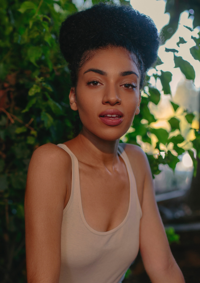
Thank you, Carene, for sharing your words and stories of your family and grandtatik.
Beautifully written……you are a wonderful soul.
Your article and the story of your life is very interesting, thank you. Some of my ancestors were from Armenia, our last name is Masis. However, it seems to me that the Arminian people are not eager to receive anyone that is not already in “their” clan. I am a writer and some of the story I write, fantasy fiction based on history, takes place in Masis Armenia, so I have done quite a bit of research. Best to you and I am delighted you found love in at least one ancestor!